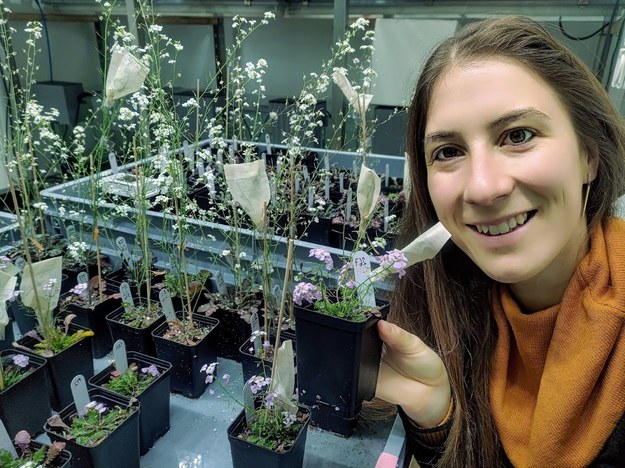The prestigious John Maynard Smith Prize was awarded to Magdalena Bohutínská
 Photo: archive of Magdalena Bohutinska
Photo: archive of Magdalena Bohutinska
The winner of the John Maynard Smith Prize for 2024 is Magdalena Bohutínská, Ph.D. from the Department of Botany at the Charles University and Marie Sklodowska-Curie Actions fellow at the University of Bern.
Her research aims to unravel the genetic basis of adaptive evolution and understand how various genetic factors shape evolutionary processes in natural environments. She uses empirical studies of adaptation to the external ecological environment, particularly in alpine plant species, as well as adaptation to the internal genomic environment, particularly in species with recent polyploidy. Her focus is not only on understanding how adaptation happened but, more importantly, why it happened.
One of her major interests is to use cases of repeated adaptation to determine if we can predict why species adapt to similar environmental challenges in similar ways. During her PhD research with Filip Kolář at Charles University, she focused on how Arabidopsis species adapt to alpine environments. She discovered that closely related lineages use more of the same genes when adapting to similar environments compared to more distantly related lineages. Expanding on this finding, her current postdoctoral work at the University of Bern with Catherine Peichel has shown that this decline in gene reuse as lineages and species diverge over time is a common trend observed across many taxa. She hypothesizes that both a reduction in allele sharing and an increase in divergence in genome architecture and gene function as lineages diverge can lead to this decrease in gene reuse during repeated adaptation.
To gain further insights to why certain genes are repeatedly used in adaptation, she has identified specific ‘model genes’ displaying robust signals of repeated selection in alpine environments. Through genetic experiments conducted in growth chambers and natural alpine settings, she is currently investigating whether the presence of a shared allele, advantageous in new conditions but minimally deleterious in ancestral ones, makes these genes recurrent targets of selection. These experiments will reveal whether pleiotropy constrains or promotes gene reuse during repeated adaptation.
Magdalena’s prize will be celebrated at this year’s Joint Congress on Evolutionary Biology in Montreal, Canada, where she will give the 2024 John Maynard Smith Prize Lecture.
Information about her current article in the magazine Trends in Ecology and Evolution
Document Actions